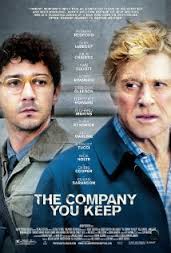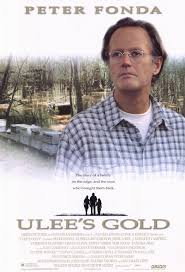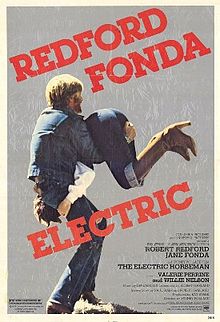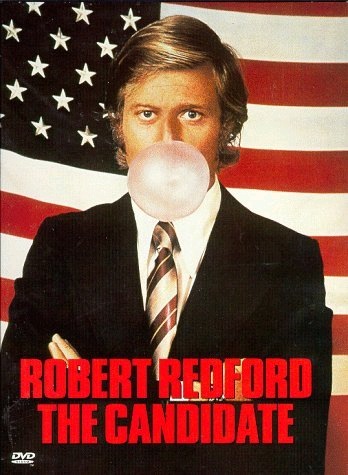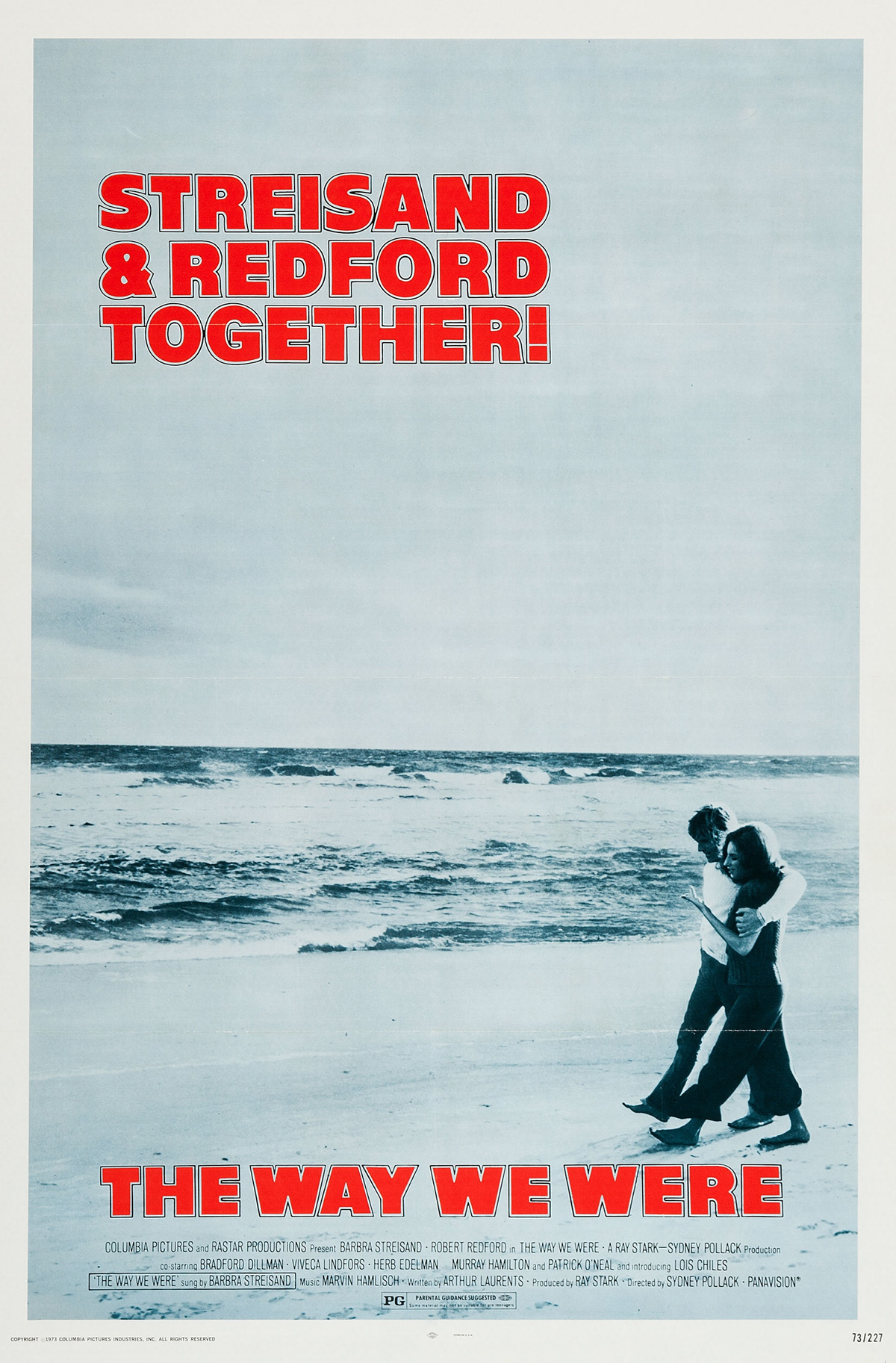Youth is served in Redford’s
de-radicalization of the ’70s
“The Company You Keep” is a fictional movie by Robert Redford about the Weather Underground, a radical group known in part for a 1970s bombing campaign, and happened to be released in the United States just days before a bombing unleashed horror at the Boston Marathon.
It is doubtful there will be any pressure to yank “Company” from theaters. “Incendiary” is about the last term that describes it. Rather, it is a fictional collection of speeches and manifestoes from about 6 Weather Underground veterans decades after a crime was committed. Their assessments vary by degrees. Everyone thinks it was right to be principled. After that, there is anything but consensus over what to do about it now.
There is certainly a message here: That nothing supersedes the welfare of a child. The lessons apply far more to young people who have no idea what the Weather Underground was than the graying crowd that will undoubtedly compose the bulk of attendance. If you challenge authority, that’s great, but be careful — it can haunt you, and more importantly your loved ones. Forever. Like-minded activists will disagree on what’s right and wrong. Just know what you’re getting into. The people who need to see this are at Lady Gaga concerts but the ones who actually will see it remember Woodstock.
Based on a novel, “Company” must be far better as a book. Unfortunately, Redford, as the director, was unable to give the film almost any appealing visuals. He opts against any depiction of the group’s crime. We’re not to judge what happened, only what people think about what happened. There is a harsh police interrogation room you’ve seen countless times. There is a last-second escape on a subway train you’ve seen countless times. There is a perfectly necessarily empty cabin available, just like in “The Electric Horseman,” a 1979 Redford vehicle. Otherwise, it is people sitting in rooms having clandestine conversations with each other. Secrecy is no substitute for stress. That most of these conversations do not take place under duress saps them of energy. Former radicals defend/rationalize/lament what they did. But what exactly did they do, and to what extent are they in hiding? Details are offered, but it’s left to the imagination.
What does actually work is the vigor of the aging stars. Redford seems to have, like Clint Eastwood has shown, a more distinguished kind of stature in his 70s. He is realistically too old for this character (timing and age often don’t add up here) but pulls it off. Julie Christie and Susan Sarandon exemplify the “permanent babe” notion of the female radical. Two young women in the movie, Brit Marling and Jackie Evancho, are stunning. They convey a troubling point, possibly valid or possibly not, that an adult can either have a fiery activism or a beautiful suburban family, but not both.
There are certainly parallels to other films. One that comes to mind is “The Fugitive,” in which Harrison Ford’s Richard Kimble attempts to crack a case while on the lam. On Redford’s own ledger is “Three Days of the Condor,” a 1975 thriller about a sympathetic figure with crucial information who must hide for days while he pieces together the story.
Is Nick Sloan/Jim Grant an authentic radical? Some of his reflections sound like what Michael Gross’ Stephen Keaton would’ve said on “Family Ties.” Prior to a key showdown between Jim and a female character, we are given a contrast in how they have led their lives. Redford somewhat resembles his character in 1973’s “The Way We Were,” as Hubb Gardiner found himself unable to match his lover’s passion for activism and is chastised for it. This time, he’s got a better argument for her.
In both “Company” and “The Electric Horseman,” Redford is trying to outrun authorities while believing he has the moral upper hand. Yet in “Horseman,” Redford’s Sonny Steele has made a conscious decision to flout the law, with some kind of conviction that it’s the right thing to do. In “Company,” he is merely being framed — inadvertently, it seems — for something he did not do. There is a controversial message here about snitching, implying it’s something legitimate radicals won’t do to each other even if an injustice is occurring.
Not knowing what each member of the “Company” was responsible for, or to what extent (if any) he/she is in hiding, it is difficult to weight the comments of each. The description of the end of a romance sounds something like the end of the Anakin Skywalker-Queen Amidala coupling in “Star Wars: Episode III.”
As in way too many movies, a character who should be relying on phone calls is compelled to make time-consuming, costly, risky personal visits to people who might help him. Redford is trying to get the characters at each way station to wax philosophic while playing an uninteresting game of Clue. Susan Sarandon sets the clumsy tone by qualifying her defiance with more caveats than a balanced-budget amendment. The rationalizations and leads in each dialogue clash. By about halfway through, many of the conversations fade into noise, and Nick’s endeavor becomes just a waiting game for the audience.
The film’s most polarizing character is bound to be Shia LaBeouf’s Ben Shepard, a young newspaper reporter. LaBeouf at times nails the depiction like few have done in movies. Other times, he is Dan Rather on steroids, exhibiting more chutzpah as a 20something nearly fired Albany Sun-Times reporter than Sam Donaldson did during presidential press conferences. In a film trying its hardest to be understated, LaBeouf is strangely compelled to be a pit bull, to the point of lecturing both the FBI and the subjects of his interviews about the competence and righteousness of what they’ve done.
Why he’s even needed in this picture is a head-scratcher. Presumably Redford wanted a young star for box-office purposes. Instead LaBeouf contributes to an egregiously swelled cast, like an All-Star pitching staff that requires 20-game winners to serve uncomfortably as middle relievers. Redford, Christie, Sarandon and Richard Jenkins resonate. Chris Cooper, Nick Nolte, Anna Kendrick, Terrence Howard and Sam Elliott do not; they are too big for the roles they play. Somewhere in between are Brendan Gleeson and Stanley Tucci, the latter frustratingly unsure whether he’s having any fun in this business. Stephen Root’s middleman only adds unnecessary confusion to the 6 degrees (and more) of separation that has occurred here and apparently only exists to give LaBeouf somebody to harass before reaching Jim Grant.
Maybe LaBeouf is Redford’s way of offering a fine nod to print newspapers. What the FBI couldn’t find in 30 years, a young reporter found in less than 30 days. This would be a prodigious score for any newspaper reporter, let alone a young turk in Albany. But it registers as something that newspapers do, and do well. It’s a Hollywood tribute to a critical component of a free and just society.
LaBeouf’s connections with 2 young women are dubious to say the least. At least one of those women is actually too old and sophisticated to be handled the way she is in this film, but there is nevertheless something precious represented there.
There is a jewel here and it is Redford. He is not a beacon of wisdom or righteousness, but of caution, insisting and assuring only that all parties clearly think about a complex situation and all of its ramifications. There is more than a cause at stake here. Facing steep odds, he is confident that the right thing will happen. One gets the feeling that after this case goes down, the FBI crew will congratulate him for his sense of fairness. Ideals should be unwavering. Sometimes priorities must change.
2.5 stars
(April 2013)
“The Company You Keep” (2013)
Starring Robert Redford as Jim Grant/Nick Sloan ♦ Shia LaBeouf as Ben Shepard ♦ Julie Christie as Mimi Lurie ♦ Susan Sarandon as Sharon Solarz ♦ Nick Nolte as Donal Fitzgerald ♦ Chris Cooper as Daniel Sloan ♦ Terrence Howard as FBI Agent Cornelius ♦ Stanley Tucci as Ray Fuller ♦ Richard Jenkins as Jed Lewis ♦ Anna Kendrick as Diana ♦ Brendan Gleeson as Henry Osborne ♦ Brit Marling as Rebecca Osborne ♦ Sam Elliott as Mac McLeod ♦ Stephen Root as Billy Cusimano ♦ Jackie Evancho as Isabel Grant ♦ Matthew Kimbrough as Barnes ♦ Lochlyn Munro as FBI Agent Munro ♦ Hiro Kanagawa as FBI Agent Kanagawa ♦ Andrew Airlie as Albany FBI Senior Agent ♦ Lane Edwards as Albany FBI Tech Agent ♦ Kenneth Miller as Albany Junior FBI Agent ♦ Susan Hogan as Florida Woman ♦ Gabrielle Rose as Marianne Osborne ♦ David Milchard as Ann Arbor County Clerk ♦ Erin Simms as New York Hotel Clerk ♦ David Lewis as Albany FBI Agent Lewis ♦ Jon Johnson as Albany FBI Agent Johnson ♦ Bethany Brown as Record Store Clerk ♦ Kelly-Ruth Mercier as Gas Station Cashier ♦ Keegan Connor Tracy as Jim Grant’s Secretary ♦ Hazma Adam as New York Cameraman ♦ Gabriela Reynoso as Maria ♦ Marsha Regis as Albany Times Assistant ♦ John Shaw as DMV Source ♦ Petty Officer 2nd Class John Sopher as Coast Guard Captain ♦ Bernie Yao as Car Rental Clerk ♦ Bruce Dawson as Sharon Solarz’s Husband ♦ Andrea Brooks as Sharon Solarz’s Daughter ♦ Jackson Warris as Sharon Solarz’s Son ♦ Dawn Chubai as News Anchorwoman #1 ♦ Sophie Lui as News Anchorwoman #2 ♦ Dale Wolfe as Ann Arbor Reporter ♦ Mark Brandon as New York Anchor #1 ♦ Jan Bos as New York Anchor #2 ♦ Clay St. Thomas as 80’s Reporter ♦ Barry Bowman as 80’s Newsman ♦ Fred Henderson as 80’s Anchorman ♦ Dan Gerrity as 70’s News Anchor ♦ Mark Pawson as On-Site Journalist ♦ Allison Riley as New York Newswoman ♦ Donna Lysell as Eva Sloan ♦ Jason Blue as Rebecca’s Date ♦ Peter Jenkins as Dad on Train ♦ G. Michael Gray as Drunk on Train (as Michael Gray) ♦ Eddy Huber as Daniel Sloan’s Doorman ♦ Nicole G. Leier as Gas Station Customer ♦ Lucie Guest as Bikini Girl ♦ Jennifer Bradley as Billy’s Cusimano’s Daughter ♦ Hamza Adam as Maulik Banjali (uncredited per IMDB) ♦ Lexie Huber as Jim’s Wife (uncredited per IMDB) ♦ Mihaela Cristina Istrate as Student (uncredited per IMDB) ♦ Nicole Smashnuk as Woman who lost shoe in evacuation (uncredited per IMDB) ♦ Mark Steinberg as (uncredited per IMDB) ♦ Jordan Weller as (uncredited per IMDB)
Directed by: Robert Redford
Written by: Lem Dobbs (screenplay)
Written by: Neil Gordon (novel)
Producer: Nicolas Chartier
Producer: Bill Holderman
Producer: Robert Redford
Executive producer: Craig J. Flores
Executive producer: Shawn Williamson
Associate producer: Jonathan Shore
Original music: Cliff Martinez
Cinematography: Adriano Goldman
Editing: Mark Day
Casting: Avy Kaufman ♦ Maureen Webb
Production design: Laurence Bennett
Art direction: Jeremy Stanbridge
Set decoration: Carol Lavallee
Costume design: Karen L. Matthews
Makeup and hair: Norma Hill-Patton ♦ Jessica Rain ♦ Dennis Liddiard ♦ Heather Barreca ♦ Andrea Manchur ♦ Krista Seller
Production manager: Paul Lukaitis
Stunts: Danny Virtue
Special thanks: Dominic Rustam
